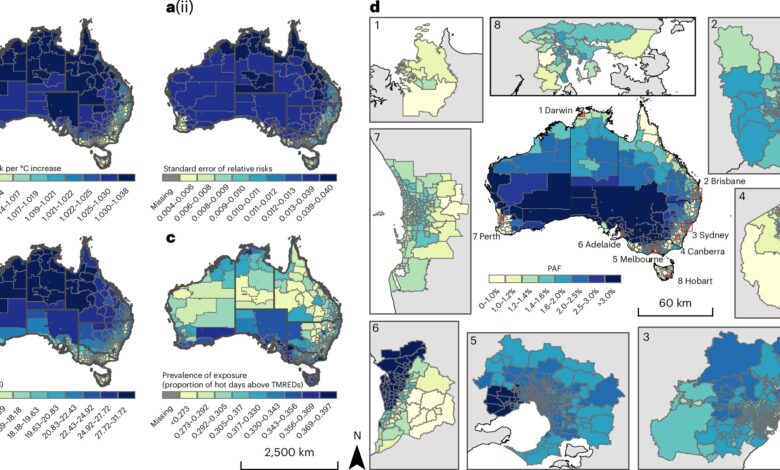Extreme heat poses threat to mental health

Climate change is not just about rising sea levels and extreme weather events—it also poses a significant threat to mental health. A new study from the University of Adelaide reveals that increasing temperatures in Australia could lead to a 50% rise in the burden of mental and behavioral disorders by 2050. The research, published in Nature Climate Change, highlights the urgent need for action to protect mental health as the climate continues to warm.
The study shows that high temperatures are already contributing to a significant loss of disability-adjusted life years (DALYs) in Australia, with young adults aged 15 to 44 being particularly affected. The impact of high temperatures on mental health is seen across a spectrum of disorders, including anxiety, depression, bipolar disorder, schizophrenia, and substance abuse.
Lead author Professor Peng Bi emphasizes the need for immediate action to address the mental health impacts of climate change. He points out that warmer regions closer to the equator face higher risks, with the Northern Territory showing the highest predicted relative risk. South Australia and Victoria also have a significant proportion of the burden of mental health disorders attributable to high temperatures.
The study underscores the importance of policymakers in developing targeted interventions to minimize the mental health impacts of climate change. Factors such as income, access to healthcare, and local conditions can shape how heat affects mental health, with some communities being more vulnerable than others.
The researchers call for the implementation of heat-health action plans to prepare healthcare systems for the increasing mental health needs driven by climate change. They also recommend localized solutions, such as community programs and green spaces, to build resilience and support for vulnerable groups. By focusing on people-centered strategies, policymakers can help build stronger, more resilient communities for the future.
In conclusion, the study highlights the urgent need to address the mental health impacts of climate change in Australia. By taking proactive measures now, we can protect the well-being of individuals and communities as temperatures continue to rise. The findings serve as a reminder that climate change is not just an environmental issue—it’s a public health concern that requires immediate attention and action.





